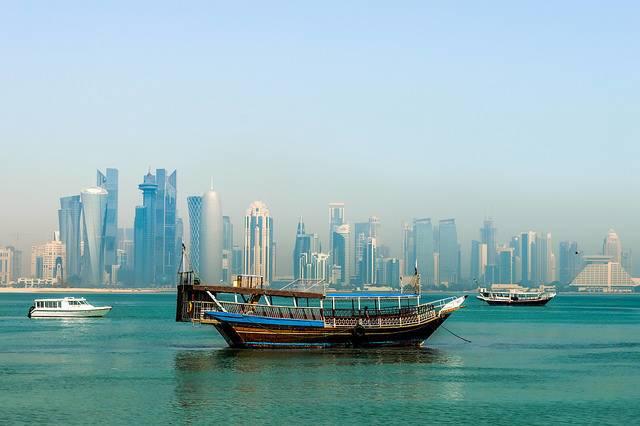
According to Human Rights Watch, the Middle East nation Qatar will still deny children of Qatari women and non-Qatari men the right to full citizenship, a privilege long granted to the children of Qatari men who marry non-citizens. As a result, while they can become permanent residents and have access to government health care and education, these children who were born to a Qatari mother but foreign father will still lack the most important tenant of citizenship: a passport.
While the wealthy oil kingdoms in the Middle East’s Gulf region like to think of themselves as forward-thinking and progressive societies, those nations’ performance on social progress often lag if the data mined goes beyond the self-congratulating press releases their governments issue on a frequent basis.
This is especially true of Qatar, which is embroiled in a bitter diplomatic row with its neighbors Saudi Arabia, Bahrain and the United Arab Emirates, as well with other regional powers. The situation would be even worse for the tiny country, if it were not for the fact that many observers say the accusations heaped on Qatar by its regional rivals are essentially coming from a pile of pots calling the other kettle black.
Despite the ongoing diplomatic crisis and the cuts in business ties between these nations, many companies still see plenty of business opportunities with the country of 2.5 million people. After all, Qatar still has copious reserves of oil and gas, and will have plenty to export once this diplomatic brouhaha is over. In the meantime, Qatar has embarked upon an ambitious plan to bolster its food production and security in the event similar crises occur in the future. Furthermore, despite the criticism heaped on the country as a result of its winning the right to host the 2022 FIFA World Cup, plenty of opportunities exist in construction, hospitality and sponsorships tied to soccer’s marquee event.
But companies that say human rights and fairness for all employees is important to their mission, yet are considering partnerships and investments in Qatar, may want to think twice before ramping up business relationships in the country. Human Rights Watch is one NGO that has routinely criticized the country’s government over its treatment of migrant workers, notably those who are building the country’s World Cup venues. The country has also been scrutinized over its dubious record of freedom of expression, approach towards women’s rights and anti-gay legislation.
Qatar’s cabinet claims recent immigration reforms are a step forward, but activists insist that the government is not going far enough to treat all residents fairly. In 2005 the Qatari government enacted a law allowing anyone living in the country for more than 25 years the right to apply for citizenship. But Human Rights Watch argues that the law is not applied fairly. “Qatar should allow children the right to acquire nationality on an equal basis from their mothers or their fathers,” said Rothna Begum, a Middle East women’s rights researcher at Human Rights Watch. “They could lead the way in correcting this discriminatory situation among Gulf countries.”
Qatar’s inconsistent execution of its residency laws is also putting the lives of some journalists in jeopardy. Human Right Watch said it recently interviewed a dozen employees of Al Jazeera, a Qatar-based news agency that has been on target of the country’s regional rivals. All of them, who are from Egypt, Saudi Arabia or Bahrain, have not been able to renew passports and now fear that they will lose their Qatari residency permits. If they return to their home countries, they are at risk of persecution due to their journalistic work for Al Jazeera.
Furthermore, even though it is in the midst of a region that accounts for its fair share of refugees and asylum seekers worldwide, Qatar has no laws on asylum, nor has it ratified the 1951 Refugee Convention. Therefore, while it is true that some of its neighbors’ accusations are unfair and hypocritical, if Qatar wants to accede to its coveted position as a global leader, it may want to join the world in guaranteeing fundamental human rights for all of its citizens – and respect the rights of citizens from outside its borders as well.
Image credit: Francisco Anzola/Flickr

Leon Kaye has written for 3p since 2010 and become executive editor in 2018. His previous work includes writing for the Guardian as well as other online and print publications. In addition, he's worked in sales executive roles within technology and financial research companies, as well as for a public relations firm, for which he consulted with one of the globe’s leading sustainability initiatives. Currently living in Central California, he’s traveled to 70-plus countries and has lived and worked in South Korea, the United Arab Emirates and Uruguay.
Leon’s an alum of Fresno State, the University of Maryland, Baltimore County and the University of Southern California's Marshall Business School. He enjoys traveling abroad as well as exploring California’s Central Coast and the Sierra Nevadas.














